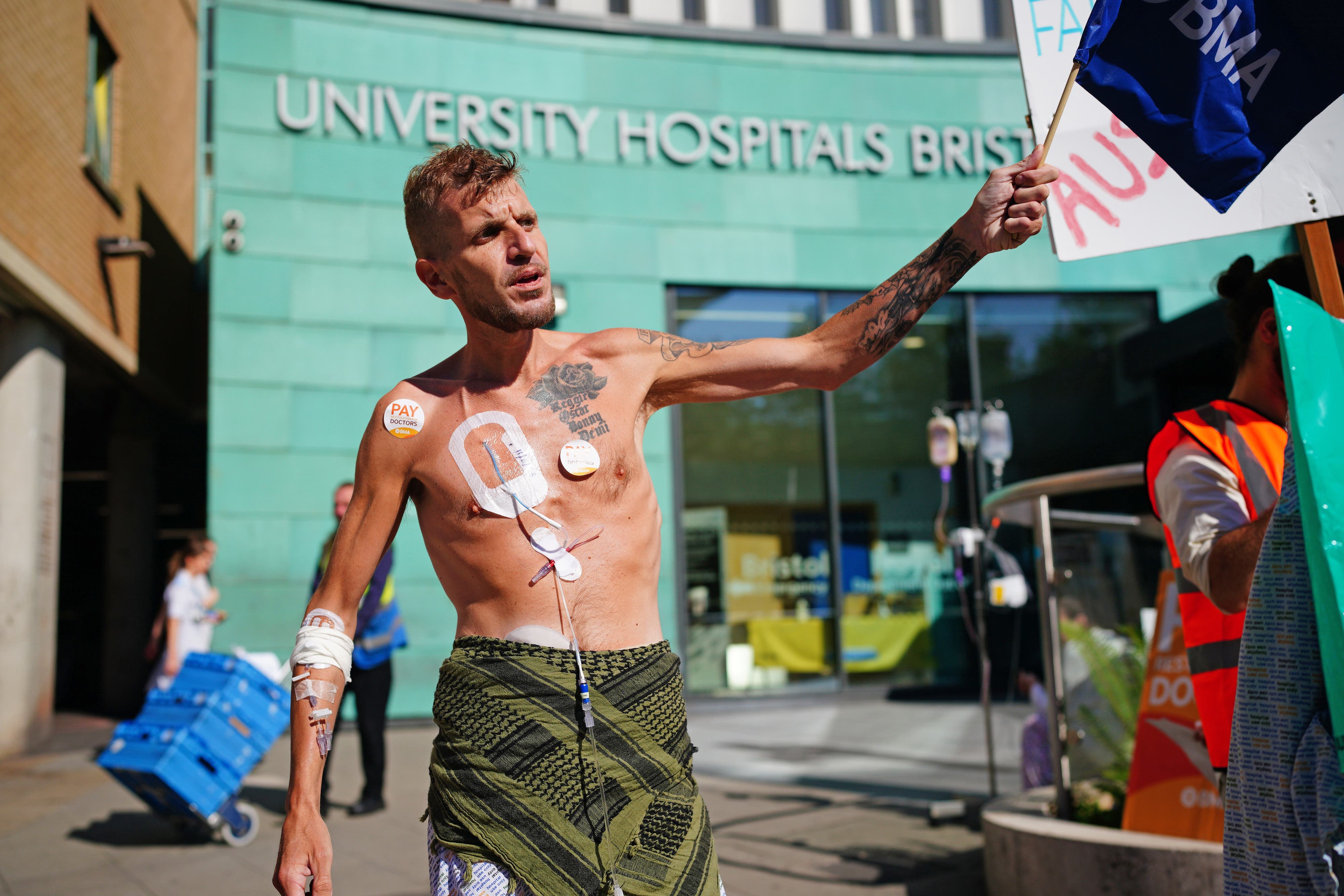Acas ‘ready’ to facilitate talks between junior doctors and the Government
The conciliation service said it is well prepared and ready to help end the dispute.

Your support helps us to tell the story
From reproductive rights to climate change to Big Tech, The Independent is on the ground when the story is developing. Whether it's investigating the financials of Elon Musk's pro-Trump PAC or producing our latest documentary, 'The A Word', which shines a light on the American women fighting for reproductive rights, we know how important it is to parse out the facts from the messaging.
At such a critical moment in US history, we need reporters on the ground. Your donation allows us to keep sending journalists to speak to both sides of the story.
The Independent is trusted by Americans across the entire political spectrum. And unlike many other quality news outlets, we choose not to lock Americans out of our reporting and analysis with paywalls. We believe quality journalism should be available to everyone, paid for by those who can afford it.
Your support makes all the difference.Acas said it is “well prepared and ready to help” resolve a bitter dispute between the Government and junior doctors.
The British Medical Association (BMA) has written to Prime Minister Rishi Sunak urging ministers to enter talks with junior doctors through the conciliation service.
It comes as the union said the Government is “letting patients down” with its “arbitrary” stance that it will not enter talks with doctors while strikes are planned.
Later this month, junior doctors are planning to stage the largest walkout in the NHS’s history – from July 13-18.
It is an absolute travesty that we're in the position where doctors feel that there is no alternative but to take strike action
And consultants – the most senior doctors in the NHS – are planning to stage industrial action from July 20-21, when they will only provide scaled-back “Christmas Day cover”.
In a letter to Mr Sunak, Dr Phil Banfield, chairman of coucil at the BMA, said: “The arbitrary precondition that you will not negotiate while strike action is planned is letting patients down.
“When negotiations previously broke down, it was your government that cancelled upcoming meetings and withdrew from scheduled talks even though the public rightly want you to use every opportunity possible to get around the negotiating table to find a solution.
“We are willing to negotiate before, during and after industrial action… by refusing to negotiate while industrial action is planned, you are penalising patients.
“It is not too late to begin intensive talks and it is not too late to avert further strikes.”
In remarks issued to the PA news agency, Kate Nowicki, director of dispute resolution at Acas, said: “We have a team of experts who are well prepared and ready to help with the junior doctors’ dispute.
“Acas has decades of experience in resolving disputes, which includes helping the various sides look at options for a compromise.
“Our collective conciliation service is impartial, free and independent. It is also voluntary, which means we can only hold formal conciliation talks when all the parties in dispute agree that the time is right for conciliation.
“An independent survey this year showed that both employers and employees overwhelming want the various sides involved in strike action to seek mediation from Acas to resolve their dispute.”
But Downing Street insisted that discussions could not be held unless strikes were called off.
If (the BMA) are willing to move beyond their starting position and pause strike action then we can begin talks
“We obviously remain open to talks and continue to call on the junior doctors to step back from such a highly disruptive strike action, which will put patient safety at risk,” the Prime Minister’s official spokesman said.
“As we did – successfully – with other health unions, we don’t think it’s right to enter into talks with the threat of strikes hanging over them.
“So we have asked, as we have done before, that strike action is postponed in order for talks to begin.”
Asked whether there could be a role for Acas, the spokesman said: “We think we have achieved success with the Secretary of State negotiating with other unions in the past, we think that’s the right way forward.
“Obviously, the BMA are requesting a 35% increase to pay, we don’t think that is fair to the taxpayer, and they are obviously still planning on significant strike action.
We are prepared to negotiate in good faith but this Government is not
“If they are willing to move beyond their starting position and pause strike action then we can begin talks.”
In an interview with PA, Dr Banfield said: “The loss of trust that has happened between this Government and the medical profession, I’ve never seen before.
“It is an absolute travesty that we’re in the position where doctors feel that there is no alternative but to take strike action.”
In his speech to the BMA annual representative meeting in Liverpool, Dr Banfield said the “whole of the medical workforce” could be on strike before the next general election.
“We will strike to the next general election and beyond if that is what it takes,” he said.
“We are prepared to negotiate in good faith but this Government is not.
“I want to repeat our clear message to Westminster throughout the junior doctors dispute: we have always said we will meet without preconditions anytime, anywhere to resolve our issues. This offer still holds.
“Meanwhile, consultants have suffered the biggest decline in pay for any branch of practice. They are joining the fight to ensure we do not lose our most senior and expert doctors – those who will train the next generation.
“At this rate, the whole of the medical profession will be in dispute at the next general election.”